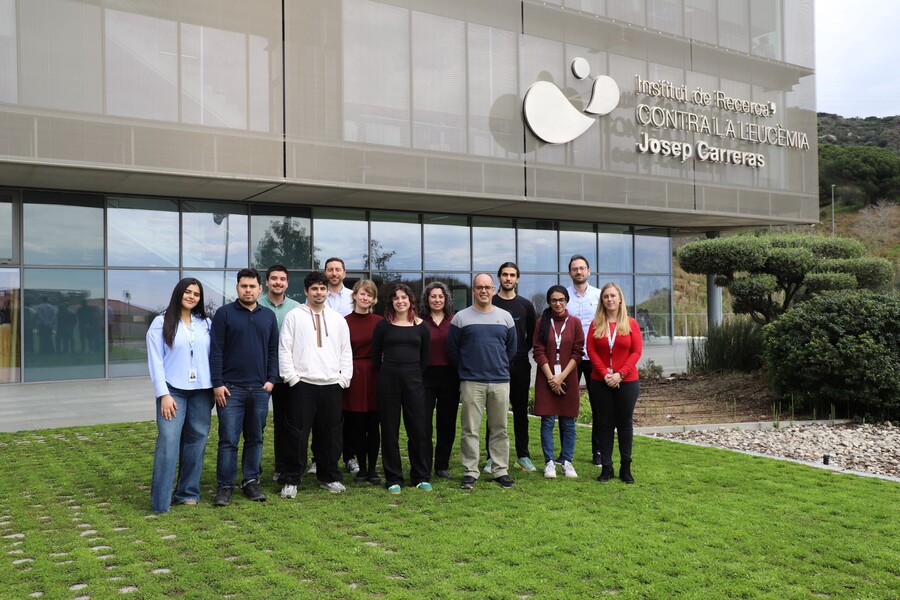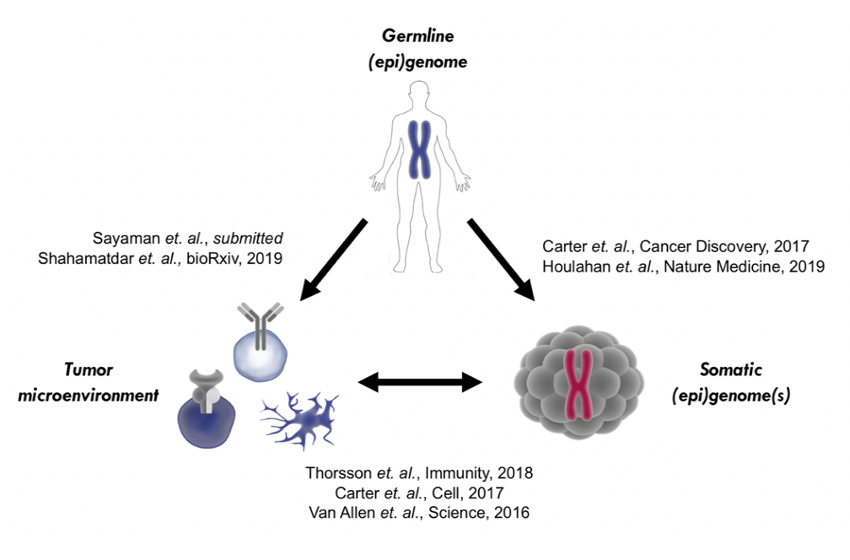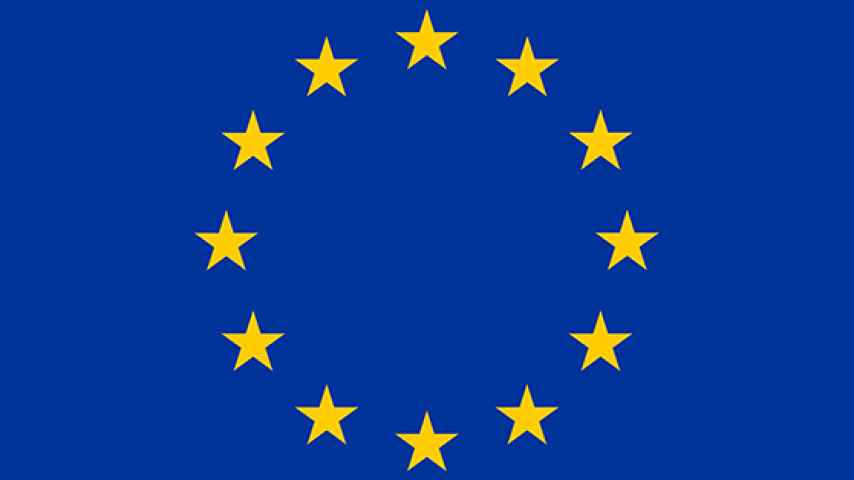
OVERVIEW
Our research lies at the interface of artificial intelligence, molecular biology and medical oncology, and we bring together experts from all three fields. We use computational approaches to study the interaction between genetic variants in cancer genomes and multiple aspects of cancer, ranging from the immune response against tumors to the susceptibility of cancer cells to different treatments.
OUR RESEARCH
Over the last two decades, there has been an explosion of three main types of big data in cancer research. We use three types of data:
1. Germline genotypes from cancer patients, this is, the base non-altered genome of individual people being diagnosed with cancer.
2. Somatic tumor genomes, being the particular genomes of individual tumors, with its unique set of alterations.
3. The amount and composition of cells in tumors coming from single-cell sequencing.
Until now, these three different aspects of tumor immunobiology have mostly been studied on an individual basis. However, it is now evident that the three factors are inextricably linked and should be studied as a whole.


OUR GOALS
Our main goal is to understand how genetic variation influences the immune response against cancer cells and vice versa. Specifically, we are working on the following lines:
1. Understanding how inherited genetic variants change the immune response against cancer cells.
2. Understanding how inherited genetic variants interact with biological sex to influence cancer predisposition. We are using the MareNostrum supercomputer to analyze genetic data from hundreds of thousands of cancer patients from this biological sex perspective, to identify genetic variants that predispose to cancer differently depending on gender.
3. Integration of protein structure and genetic data to identify new cancer-associated mutations.
4. Creating a molecular and cellular map of the tumor microenvironment in bladder cancer.
OUR CHALLENGES
Through our research, we hope to answer the following questions:
1. Is it possible to use a person’s genetic data to predict whether he/she will develop cancer?
2. Which genes play a role in the development of cancer?
3. How do genetic variants change the immune response against cancer cells?
Team

Eduard Porta
Junior Group Leader
Junior Group Leader

Alvaro Lopez
Postdoctoral Investigator
Postdoctoral Investigator

Hanna Kranas
Postdoctoral Investigator
Postdoctoral Investigator

Ivo Andre Pereira Da Cruz
PhD Student
PhD Student

Marc Escobosa
PhD Student
PhD Student
.jpg?locale=en)
Maria Fanouria Chatziaslani
PhD Student
PhD Student

Mustafa Sibai
PhD Student
PhD Student

Daniela Grases
Senior Lab Technician
Senior Lab Technician

Maria Elena Pérez
Senior Lab Technician
Senior Lab Technician
Selected Publications
Current Grants
PID2024-159258OB-I00
Ministerio de ciencia, innovación y universidades
ST-ONCOBLADDER Deciphering the Oncogenic Transformation of Bladder Cells Using AI-Powered Spatiotemporal Biology
LABAE20038PORT
Fundación científica de la asociación española contra el cáncer
Un mapa molecular y celular del cáncer de vejiga para guiar el tratamiento neoadyuvante

RYC2019-026415-I
Ministerio de ciencia, innovación y universidades
RYC2019-026415-I RYC Eduard Porta

101126667
European commission
RAMON LLULL The Ramon Llull-AIRA Postdoctoral Programme
2025 STEP 00466
Agència de gestió d'ajuts universitaris i de recerca
Predicting Immune Checkpoint Inhibitor response through AI-Based spatial profiling of digital pathology
101126667
European commission
RAMON LLULL The Ramon Llull-AIRA Postdoctoral Programme

101081298
Fundación científica de la asociación española contra el cáncer
Deciphering the spatial architecture of B-Cell lymphomas